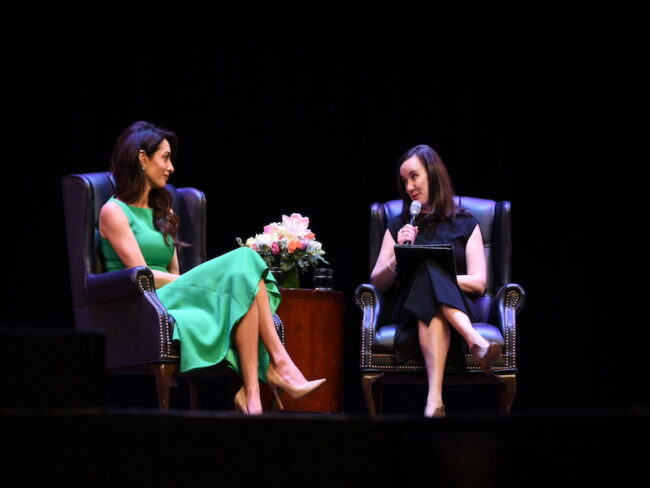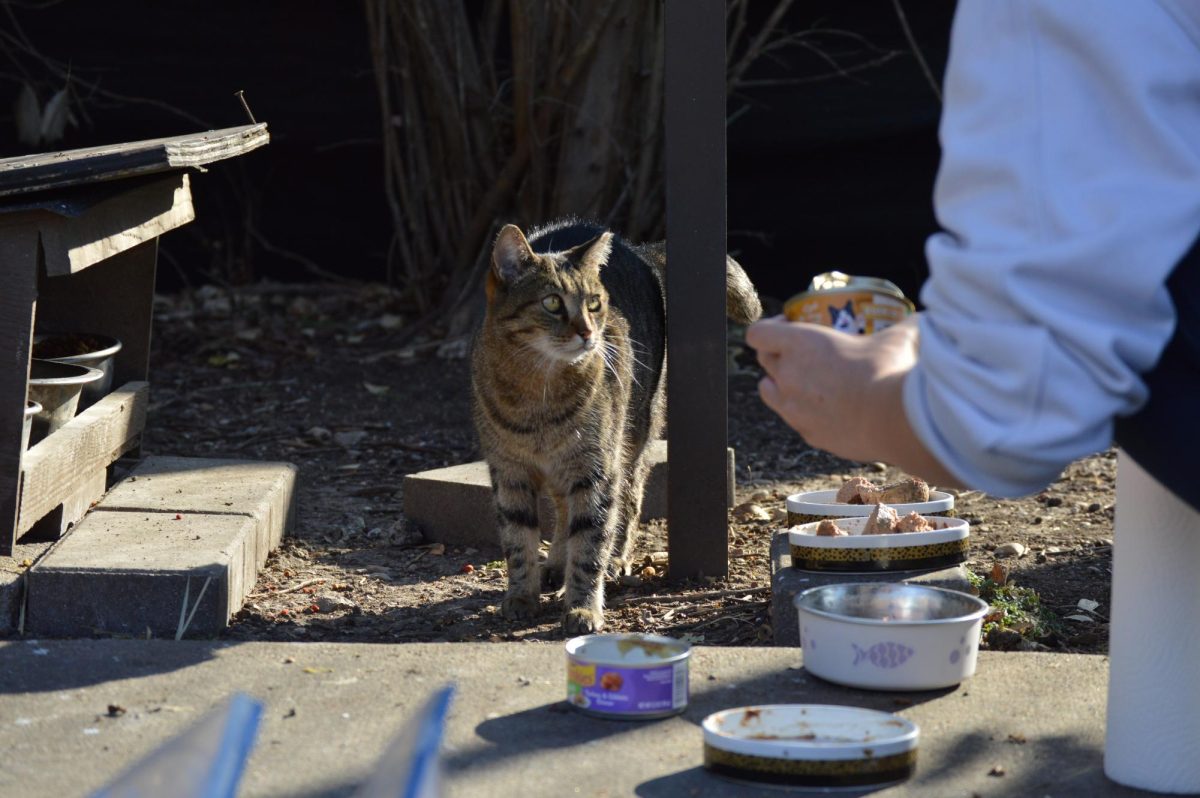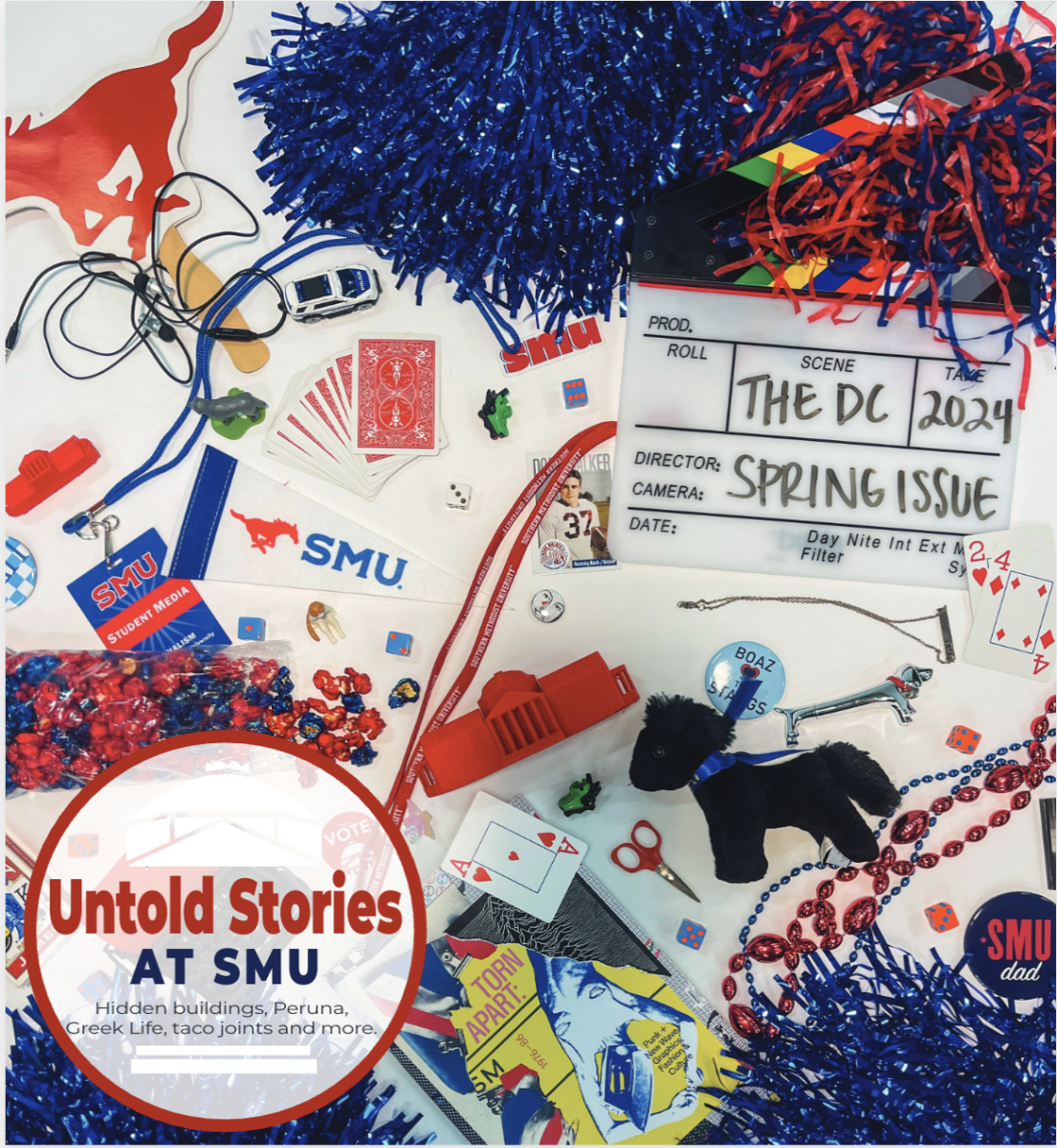The nearly full McFarlin Auditorium becomes quiet as the lights dim. SMU Dedman School of Law Dean Jason Nance steps forward to begin the night.
The Louise B. Raggio Endowed Lecture Series, named after an SMU alumna and staunch supporter of women’s rights, presented a conversation with Amal Clooney last Thursday night.
The conversation lasted about 45 minutes. It was preceded by an event exclusively for law school students, in which Clooney took student questions. However, the conversation in McFarlin focused on Clooney’s work in human rights.
“I’m not a world leader… [I] don’t have the power to pass laws,” Clooney said. “But as a lawyer, there are things you can really do to make a difference to the people on the front lines.”
The conversation was moderated by law school professor Natalie Nanasi, who understood just how special of a guest she was talking to.
“There’s only one Amal Clooney,” Nanasi told The Daily Campus. “Having somebody of this caliber in the human rights world join us is a big deal. It’s a big deal for our university and for our law school.”
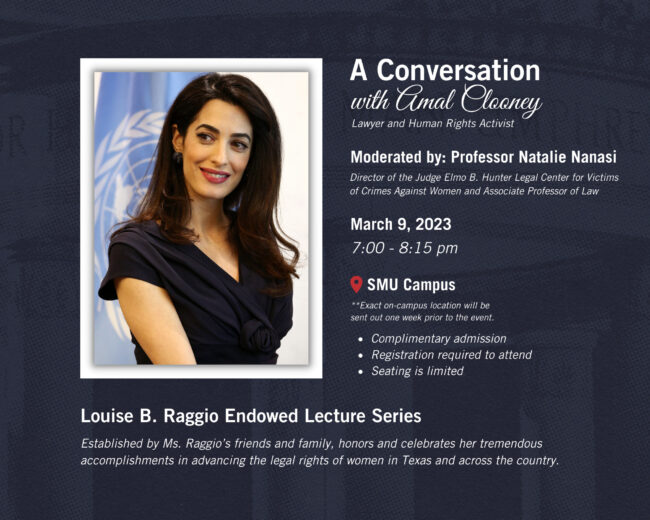
The conversation began with a discussion of Clooney’s background. Born in Lebanon, Clooney immigrated to England with her family when she was 2 years old to flee the Lebanese Civil War that was ravaging the country.
“[My parents] actually called me Amal, which means hope, because they thought the war was going to end soon,” Clooney said. “I think it has made me an optimist, or inspired me to be hopeful.”
Though at the time she didn’t consider herself a refugee, she has reflected on the word more recently.
“The term has become sort of vilified and kind of a political hot potato,” Clooney said. “Now, if the same thing happened, I wouldn’t have been able to get into the UK under current laws … my own experience is emblematic, I think, of so many people who don’t choose to be refugees, they just are fleeing war and violence and persecution.”
After being educated in the United Kingdom at Oxford, Clooney moved to New York to begin her legal career. Her first major case was the Enron scandal, where she spent time in Houston.
“It let me get to know Texas a little bit,” Clooney said with a smile to the audience.
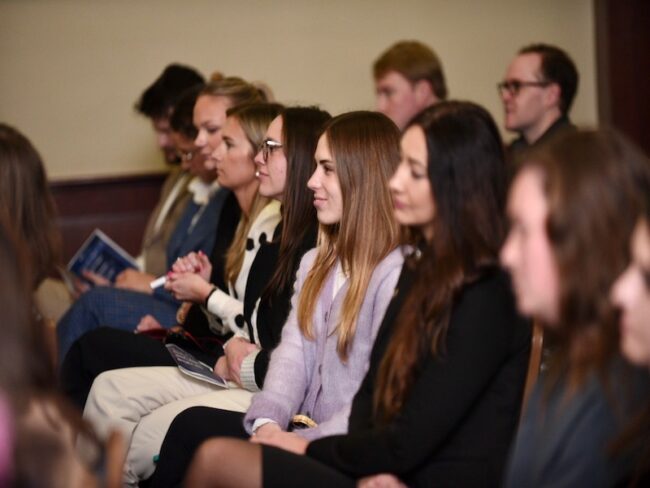
As her career progressed, Clooney began to do more pro-bono work focusing on human rights. She soon got the opportunity to work as a judicial assistant at The Hague, where she observed the trial of President of former Republic of Yugoslavia for war crimes.
Clooney has gone on to have an incredibly impressive career. According to her biography, “Ms. Clooney has represented Armenia in a case involving the Armenian genocide. Ms. Clooney also represents political prisoners around the world and has helped to secure the freedom of journalists arbitrarily detained for their work across the globe.”
Clooney told stories from various cases she worked on, ranging from bringing the first case against a member of ISIS, to her work in the Maldives trying to free a journalist wrongfully imprisoned, as well as funny anecdotes about teaching at Columbia Law School.
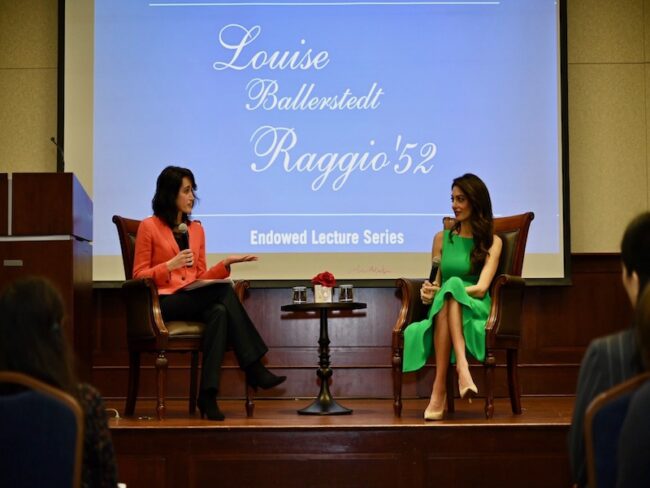
Spending years up-close to human rights violations might be discouraging for some. However, Clooney’s experiences have helped shape her current views on justice, as well as serve as encouragement.
“I have seen the powers of what individuals can do to plug the gaps in the system,” Clooney said.
Clooney ended the event with the words of South African activist Albie Sachs to serve as some encouragement to the audience.
“He said, ‘You know guys, this work is really serious but it doesn’t mean that the work can’t be fun and it’s okay to have a sense of fun with the purpose’,” Clooney remembered. “I think there’s something to that. The worst thing that could happen is for people to be apathetic because sometimes I think you can’t confront evil but you can confront apathy.”



